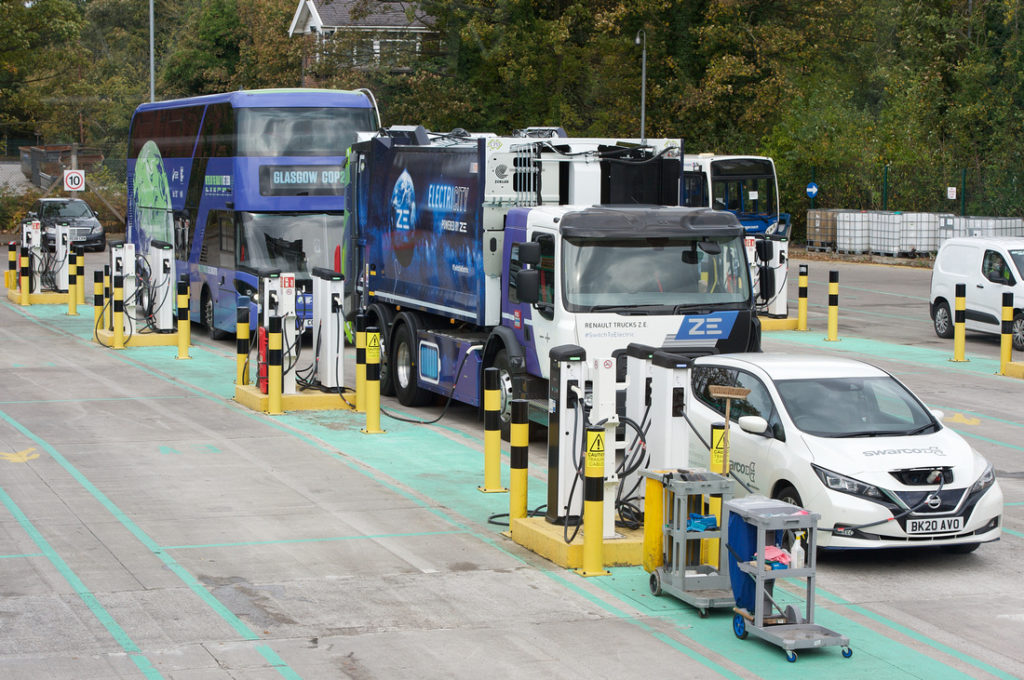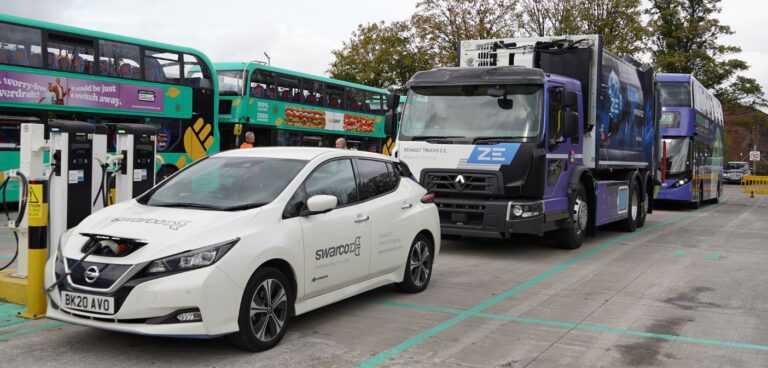Plans to open up electric bus charging sites to lorries and vans so that any business can charge its EVs would help accelerate the UK’s transition to low carbon transport, according to SSE and Swarco Smart Charging.
The idea was highlighted during a visit to Sharston bus depot in Greater Manchester, which features 32 EV charging stations making it the first sizeable EV bus charging depot in England outside of London.
The partnership is currently looking at a number of opportunities around the UK to equip bus depots with EV charging facilities which could then be made available for use by local business fleets.
Kevin Welstead, EV sector director for SSE Energy Solutions, said: “By focussing on interoperability of chargers for electric vehicles across the network and efficient use of assets we can work together to benefit more electric vehicle users and support the nationwide transition to zero emission vehicles.”

The Sharston site is currently used by Stagecoach and is the home to the region’s first double-decker electric bus fleet, which is estimated to save over 2,200 tonnes of carbon a year.
SSE highlighted the shared charging idea as part of a tour of the UK’s green energy and sustainable transport projects in the run up to COP26.
A COP26-branded electric bus drew up at the Sharston charging points alongside other commercial vehicles including a refuse collection vehicle and a car. The concept is that while buses are on the roads during the day, sites could be made available during daytime hours for other businesses who wish to charge EVs.
Carla Stockton-Jones, Stagecoach UK managing director, added: “Achieving net zero is about far more than switching technology. We need to change how we live, making less use of cars and switching to more sustainable public transport, cycling and walking. This along with what we have set out in our strategy is vital if we are to meet the objectives of COP26.
“Maximising the benefit of investment in electric charging infrastructure by making facilities available to other fleet users, such as logistics companies, could help accelerate decarbonisation. This would complement the wider opportunities to cut carbon emissions and reduce local air pollution.”





